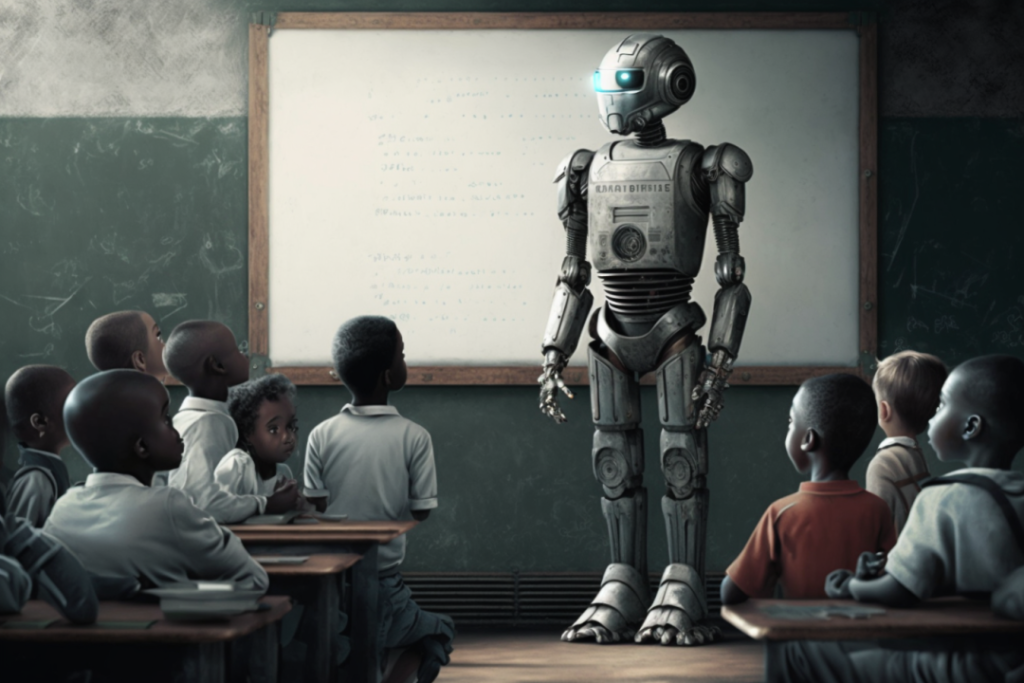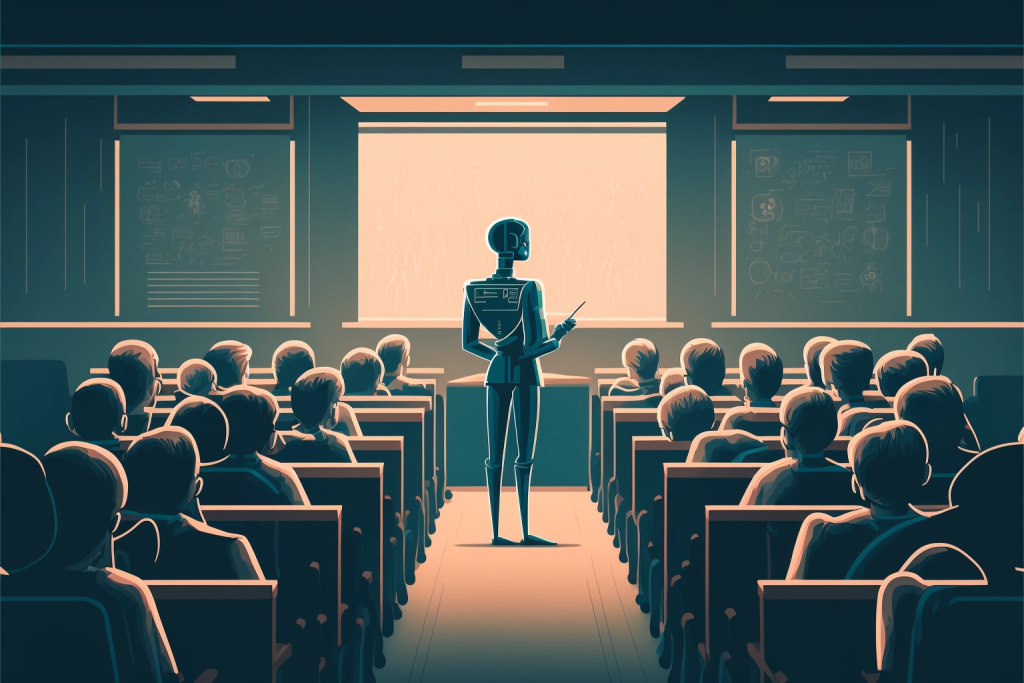
The incorporation of artificial intelligence (AI) within the realm of education has yielded notable progress and auspicious prospects. The ChatGPT (Generative Pre-trained Transformer) employs natural language processing techniques to acquire knowledge from online data, thereby providing its users with written responses to queries or cues that are based on artificial intelligence. Simply put, it is a language model that facilitates human-computer interaction in a more natural and casual manner.
ChatGPT offers numerous advantages, but one ought to consider its downsides as well, before integrating it into educational settings. According to a recent survey, a majority of students (51%) perceive the utilization of AI tools, such as ChatGPT, for the purpose of accomplishing assignments and examinations as a manifestation of academic dishonesty. In this blog, we will explore the negative impacts of ChatGPT in the education sector, which may potentially impede students’ learning and cognitive growth.
- Loss of Human Connection
The potential loss of human connection is one of the major concerns regarding ChatGPT in the educational landscape. Students can interact with their classmates and engage in meaningful discussions with their instructors in traditional classrooms. However, the introduction of ChatGPT as a replacement for human interaction could result in a decline in social skills and the formation of interpersonal relationships. Students’ ability to effectively communicate, collaborate, and empathize with others may be hindered by excessive reliance on AI-powered chatbots, thereby impeding their overall development.

- Limited Emotional Intelligence
As a language model, ChatGPT lacks emotional intelligence, which is essential for effective communication and comprehension. Emotional intelligence entails perceiving, comprehending, and regulating emotions, which is frequently essential in educational environments. Teachers can provide emotional support and guidance to students based on empathy and their experiences as a human. However, ChatGPT may not provide the necessary emotional well-being and support for children because of its inability to understand and effectively react to emotions.
- Inaccurate or Biased Information
Although ChatGPT has the capability to offer prompt responses to inquiries, there exists a potential hazard of disseminating erroneous or prejudiced data. ChatGPT uses trends it has learned from online data to create text, so the probability of being incorrect and biased is moderately high. Without proper monitoring, these biases can be repeated and strengthened, which can lead to the spread of false information. Thus, the imparting of critical thinking skills to students is of paramount importance in enabling them to assess the accuracy and validity of the information given by ChatGPT or any other AI-driven platform.
- Dependency on Technology
Students can lose the ability to think clearly and solve problems on their own if they rely too much on technology, like ChatGPT. Overdependence on artificial intelligence as a source of answers and explanations has the potential to negatively impact the analytical and problem-solving abilities of students. It is important to find a balance between using technology as a learning tool and making sure that students improve their cognitive skills through active participation and creative thinking.
- Ethical and Privacy Concerns
The integration of ChatGPT in education has given rise to ethical and privacy concerns that necessitate careful consideration and resolution. As AI systems collect and analyze data, there is a danger of mishandling sensitive student information. There are ethical concerns associated with its use, including data privacy, security, and the possibility of misusing content generated by AI. Additionally, the ethical implications of using AI-powered chatbots to collect and retain data on students, such as their learning patterns and preferences, should be carefully considered in order to ensure data protection, transparency, and consent.

Conclusion
While ChatGPT has the potential to radically alter the educational landscape, its drawbacks must be recognized and countered. Critical considerations include the potential for isolation, diminished emotional intelligence, false information, technological reliance, and ethical problems. In our roles as educators and policymakers, we must find a way to maximize the benefits of AI for students while still protecting the inestimable value of human connection and empathy. Doing so will help guarantee the safe and successful use of technology in educational settings, resulting in the optimal combination of human knowledge and AI capabilities.
Disclaimer: Any opinions expressed in this blog do not necessarily reflect the opinions of CREDP. This content is meant for informational purposes only.







